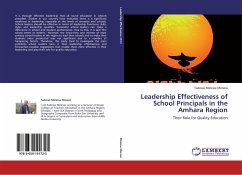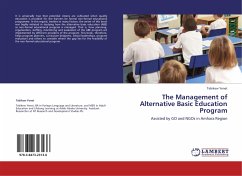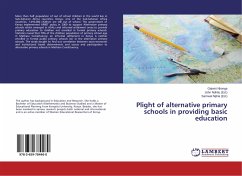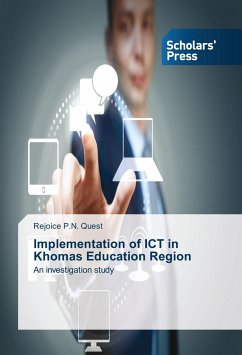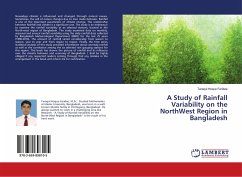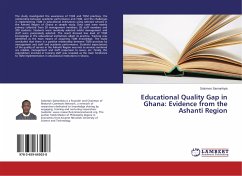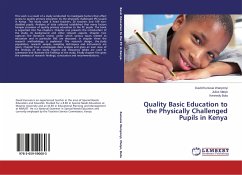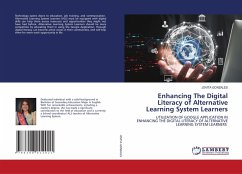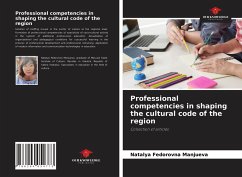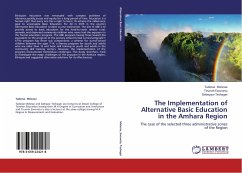
The Implementation of Alternative Basic Education in the Amhara Region
The case of the selected three administrative zones of the Region
Versandkostenfrei!
Versandfertig in 6-10 Tagen
45,99 €
inkl. MwSt.

PAYBACK Punkte
23 °P sammeln!
Ethiopia's education was entangled with complex problems of relevance,quality,access and equity for a long period of time. Education is a human right that every one has a right to learn. To achieve the millennium goal to universalize Basic Education For All in 2015 in the country Alternative Basic Education is taken as one mechanism. The aim of ABE is to provide access to basic education for the hard-to-reach remote rural, nomadic and dispersed community children who never had the exposure in the formal education program. The ABE program having three levels(1-3)is equivalent to the program of ...
Ethiopia's education was entangled with complex problems of relevance,quality,access and equity for a long period of time. Education is a human right that every one has a right to learn. To achieve the millennium goal to universalize Basic Education For All in 2015 in the country Alternative Basic Education is taken as one mechanism. The aim of ABE is to provide access to basic education for the hard-to-reach remote rural, nomadic and dispersed community children who never had the exposure in the formal education program. The ABE program having three levels(1-3)is equivalent to the program of the primary school formal curriculum(grade1-4.The program has three sub components: a scheme for out-of-school children between the ages 7-14, a literacy program for youth and adults who are older than 15 and basic skill training to youth and adults in the community skill training centers. However, the implementation of the program encountered tremendous challenges. This study, therefore, tried to investigate the major challenges of the program in the Amhara region, Ethiopia and suggested alternative solutions for its effectiveness.



